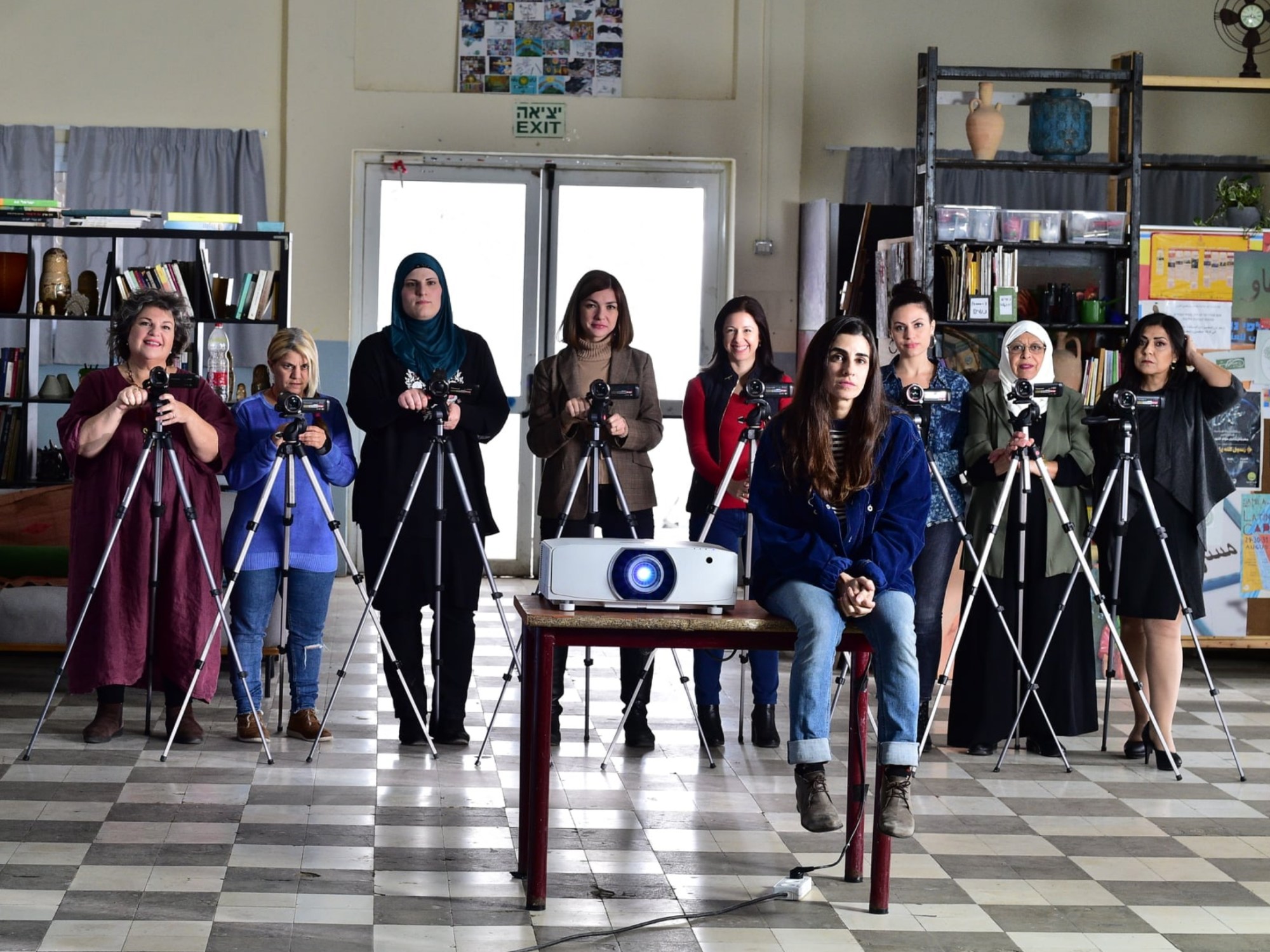
- Golden Globe Awards
Cinema Sabaya (Israel)
In the Israeli film Cinema Sabaya, eight women – all Arab and Jewish – take part in a video workshop hosted by a young Tel Aviv film director, Rona (Dana Ivgy), who teaches them how to document their lives. With each raw homemade film shot by the women and shared with the others, the group dynamic forces them to challenge their views and beliefs as they get to know each other and themselves better.
The film is based on director Orit Fouks Rotem’s own experiences running a filmmaking group for Jewish and Arab female municipal employees in several locations around the country. The diverse group of film characters include: two secular Arabs (one is a human rights lawyer and the other still lives at home with her parents), a Jewish woman who is a divorced Russian immigrant and mother of two, and a free-spirited older woman who shares her sailing boat home with a German Shepherd dog.
Shot like a documentary, the film uses mostly non-professional actors who were coached by Rotem to play a version of themselves, with the exception of Dana Ivgy, the three-time Ophir Award winner and lead of the film whose character helps challenge all the women to remove their preconceptions of each other. The film, which won the Audience Award at the Jerusalem Film Festival, was described in a Jerusalem Post review as resembling “a Middle Eastern version of the television series, Orange is the New Black”, as the film brings together a group of women from different ethnicities and backgrounds.
Filmmaker Orit Fouks Rotem says on the sales distribution website for the film, “I think that the film offers a rare glimpse to the hidden depths of the lives of Jewish and Palestinian women, where their central point of convergence, the most profound thing they had in common, is simply being a woman and this turned out to be stronger than their religion or cultural world. “Some women want their stories to be heard but they’re scared and unable to tell them in the first person,” he adds. “So that’s what makes this film also about the power of cinema too.”